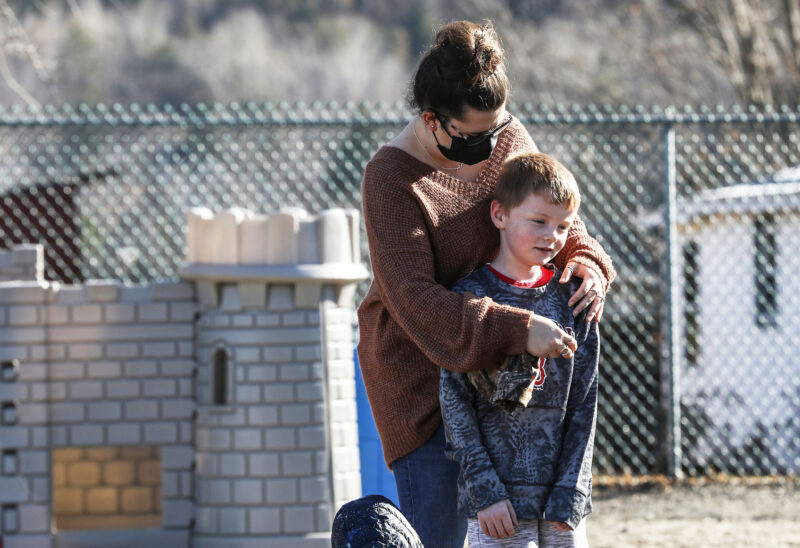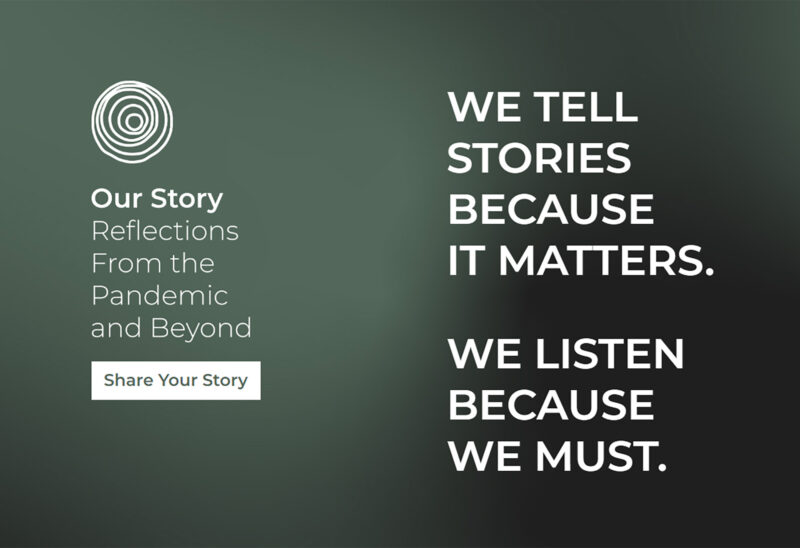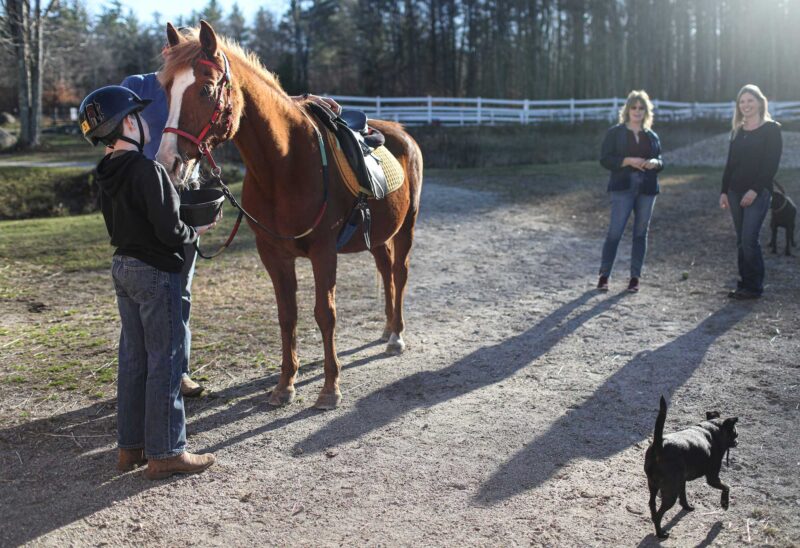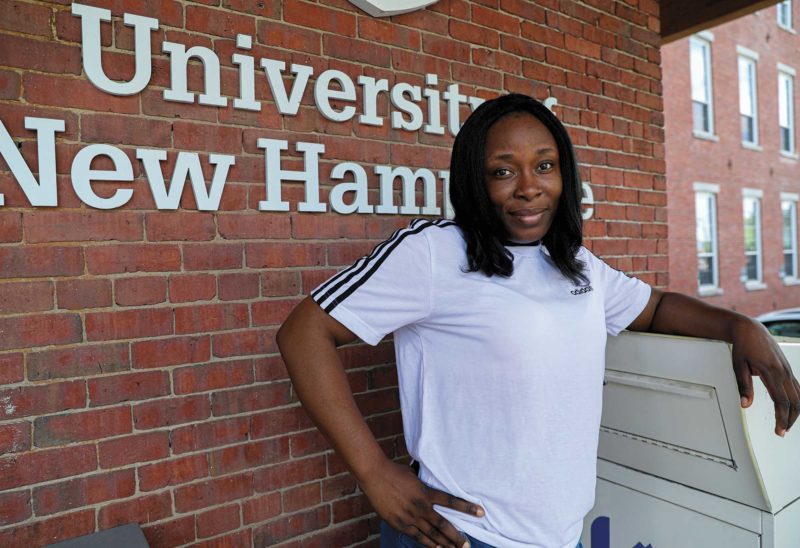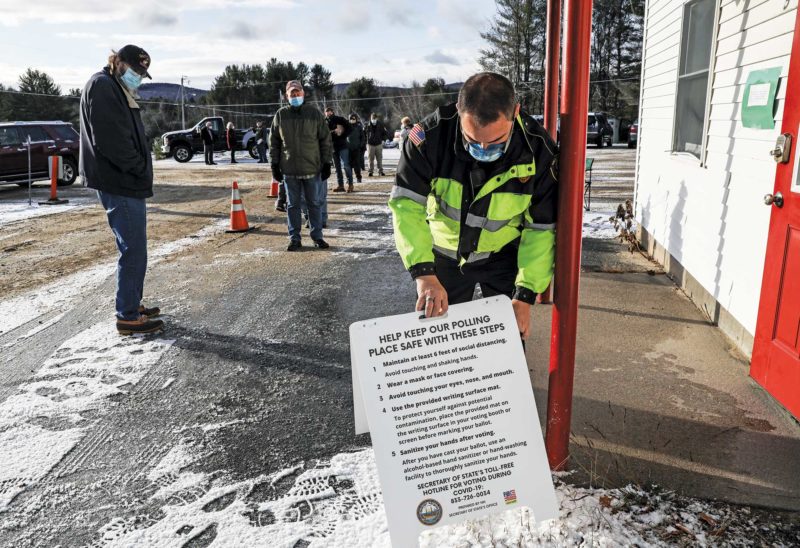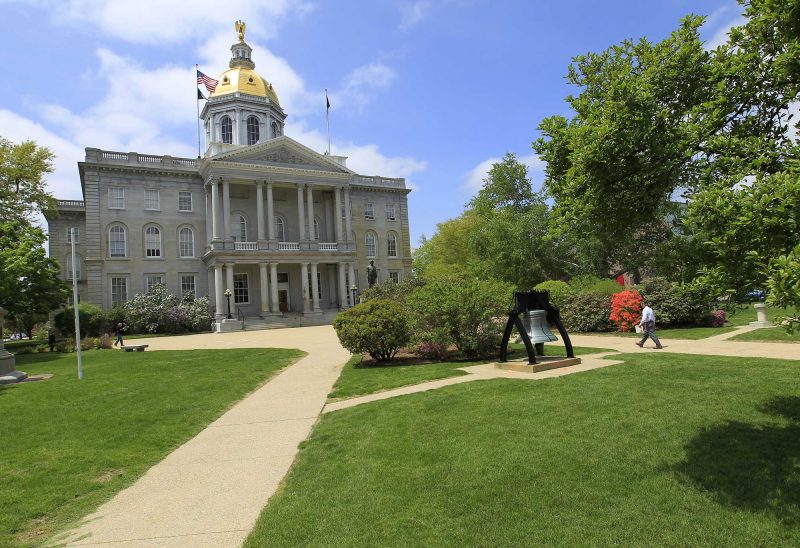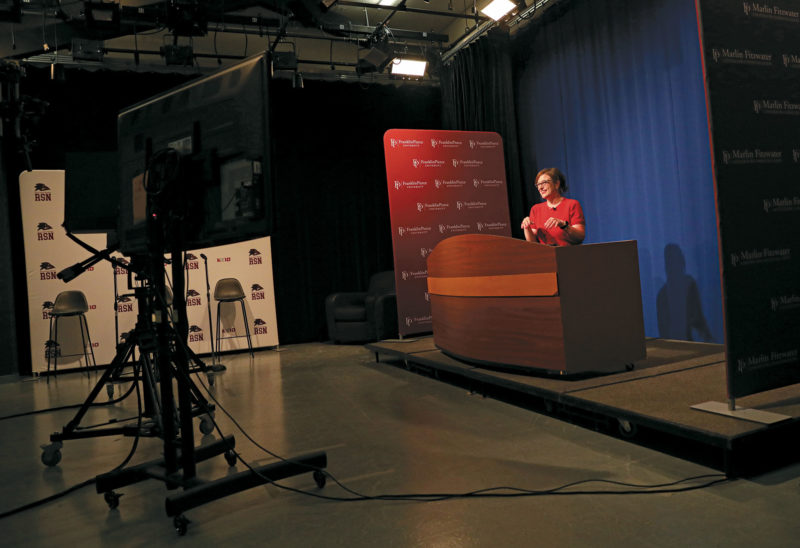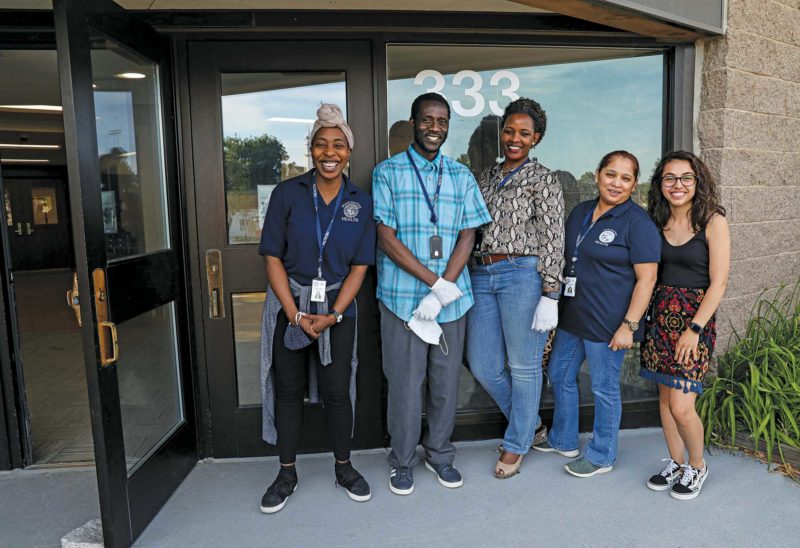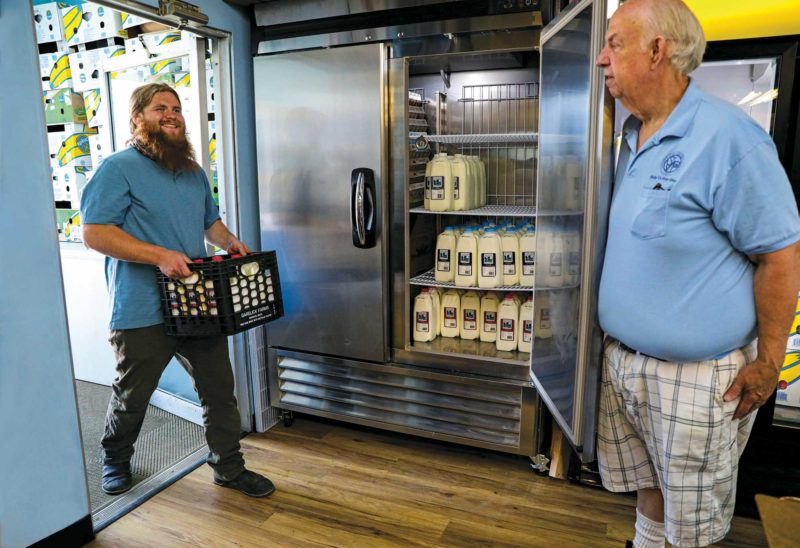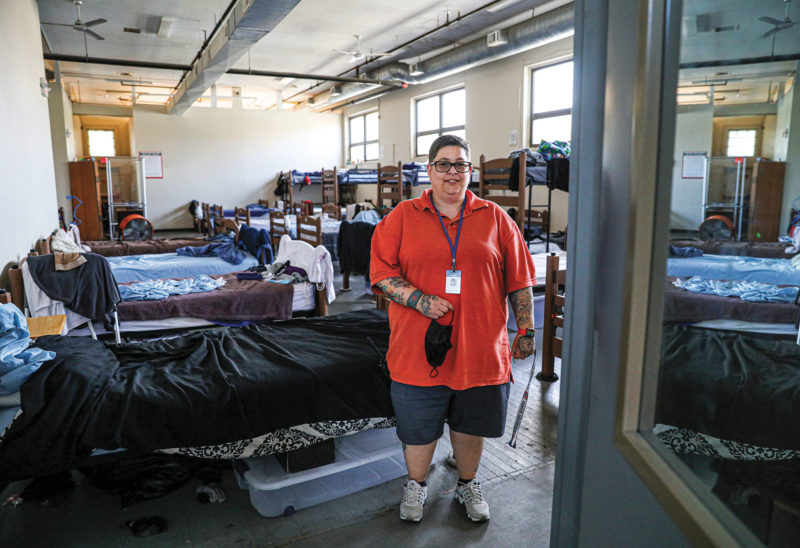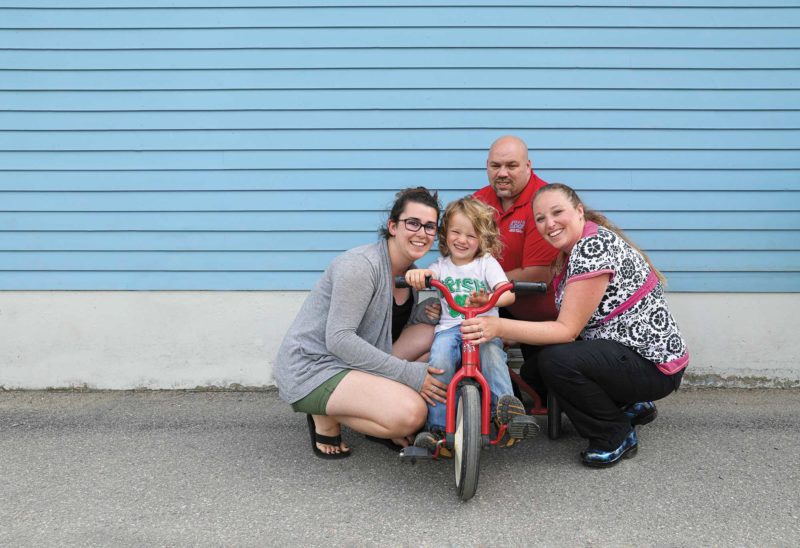As schools began to close this past spring, educators across the state scrambled to figure out how to keep teaching during the COVID-19 pandemic. Many set up virtual classrooms, recorded lectures, or developed workshops online.
Not Dawn Dextraze.
As education and outreach specialist with Sullivan County’s natural resources department and conservation district, Dextraze knew that kids were going to need a break from being on screens and inside.
“I was seeing all this Zoom stuff,” she says. “I didn’t want to do that sort of program. That’s not what we’re known for. We’re known for taking people outdoors.”
So she began posting daily “get outside and learn” lessons on social media — 15-minute outdoor activities for parents and students in the region, which includes Claremont and Newport. She and her team created new trails on county land and started building up an outdoor classroom to be used by schools and homeschool groups, complete with wood and firepit for the winter. She developed new nature-based lessons for what turned out to be a growing number of local homeschool groups. And she talked with her network of educators about joining other programs taking place across the Upper Valley, such as the “naturalist backpacks project,” which supplied teachers across the region with bags for students, pre-stuffed with supplies for outdoor exploration.
It was, she says, a natural extension of the work that she has been doing for years now as part of the Upper Valley Teaching Place Collaborative, an initiative promoting “place-based ecology education” and supported by the New Hampshire Charitable Foundation’s Wellborn Ecology Fund.
Twenty years ago, the naturalist and writer Marguerite Wellborn left a bequest of $10 million to the New Hampshire Charitable Foundation “be used for public awareness of environmental and ecological issues in the Upper Valley.” Among other things, the Wellborn Ecology Fund supports“place-based ecology education,” an approach to learning that focuses on building children’s connection to their local ecosystems, whether that means a county, neighborhood or backyard. Wellborn has provided support that helped build a network of educators across the Upper Valley and has funded a slew of professional development efforts focused on furthering this sort of nature-focused outdoor education. It has given small grants to individual schools to help them build outdoor classrooms. And it has supported positions — such as Ms. Dextraze’s — and organizations that are working to bring new outdoor programs and opportunities to children. The importance of this work has become increasingly clear during the pandemic, says Traci Fowler, the Charitable Foundation’s senior program advisor for the Upper Valley and administrator of the Wellborn Ecology Fund.
“With COVID, schools were scrambling to figure out how to make things work,” Fowler says. “Many were looking for ways to do more teaching and learning outside, and connect kids with the natural world in their own backyards — and that is exactly what this fund was created for.”
The Wellborn Fund supported provided support for local schools and families as everyone adapted, including:
- Providing operating support for the Montshire Museum, which quickly pivoted to develop the “Montshire at Home,” program an online learning and workshop series for educators and parents of young children.
- Funding a collaborative effort to prepare and distribute “Naturalist Backpacks” filled with supplies for students to use to explore the outdoors. The project targeted those schools with the greatest need, and paired the supplies with curricula resources for teachers. These backpacks supported increased time and instruction outdoors and provided a fun learning tool for students to use at both at school and at home. A thousand packs were distributed to students across the region.
- Supporting the construction of seven outdoor classrooms by a volunteer group for the Tunbridge Central School in Vermont when it returned to in-person instruction in August. The administration, teachers and parents proposed a hard pivot towards outdoor learning in response to COVID-19. Funding also helped provide adequate gear for teachers and students to be outdoors in varied weather conditions.
Groups such as the Four Winds Nature Institute, which is based in Chittenden, Vermont and works across the entire Upper Valley with Wellborn Fund support, began to brainstorm how they could shift and expand their programming to be most helpful during the pandemic.
“My staff got together and went, ‘ok, now how do we continue to meet our mission?’” says Lisa Purcell, executive director of the Four Winds Nature Institute. “Teachers want to be getting outside. Principals want more outdoor time. Everybody knows it’s important for health, for mental health, for learning. But for some teachers, it’s one more new thing. And they’ve got a lot of new things going on.”
So the organization revamped its programming to be entirely outside. The sessions, which volunteers bring to local schools, are a bit shorter — an hour to an hour-and-a-half, to make sure nobody gets too cold — and no longer involve materials that need to be passed from one student to another. But they still give students a chance to explore nature and be outdoors.
In one of Purcell’s own workshops, she says, she just finished a tree unit with elementary school students.
“We interviewed trees. We drew trees. We did a tree inventory,” she says. “What makes place-based ecology so important right now is the mental health component …. [Students] are wearing their masks all the time. But outside they have a little more room. They are in contact with green. They have contact with fresh air and they can run. There is so much control happening inside classrooms right now. And appropriately so. But outside you get that much more space, more breathing room.”
Perhaps because of this, says Andy Wood, coordinator of the Upper Valley Teaching Place Collaborative, more educators are embracing the idea of place-based ecology education.
“I can think of someone who always said, ‘I think it’s great you do it, but I’m old school. It’s not how I do it,’” says Wood, whose organization exists to connect educators with place-based professional development programs and other resources. “And now they’re outside roasting apples with their students and they’re like, ‘This is great!’”
Because of the existing network, Wood and others say, teachers in the Upper Valley have felt more comfortable reaching out for help to shift outdoors during the pandemic. And possibly, they hope, this will mean some good long-term changes.
“There’s finally a push to get outdoors right now,” Dextraze says. “Finally, people are noticing that this is healthy. That this is good. That this is the best way.”








